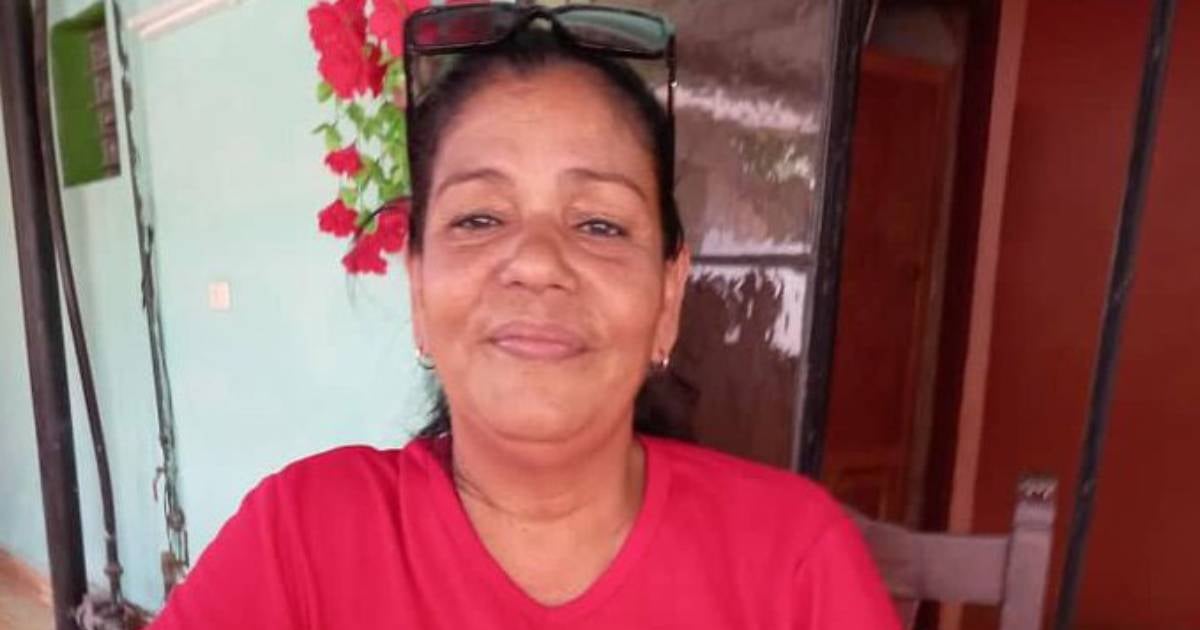
Related videos:
The Government of Cuba released this Sunday the opposition activist Tania Echevarría Menéndez, who was serving a six-year prison sentence for her participation in the protests of July 11, 2021 (11J).
"Tania Echevarría Menéndez is home; she is the first Dama de Blanco to be released," declared Berta Soler, leader of the organization, in a post on her Facebook profile.
Three other members of the movement remain in prison: Sissi Abascal, Sayli Navarro, and Aymara Nieto.
Releases following the 11J
Sayli Navarro, also detained in the context of the anti-government protests of July 11, has been recognized as a prisoner of conscience by Amnesty International. She was arrested along with her father, the prominent opposition figure Félix Navarro, who was released this Saturday.
In addition to Tania Echevarría, the regime released other demonstrators associated with the protests of July 2021 this Sunday. According to reports from the NGO Justicia 11, among those released are:
- Adán Kiubel Castillo Echevarría
- Yarelis Mesa Vázquez
- Rolando López Rodríguez
- Santiago Vázquez León
- José Antonio Gómez León
- Yoennis Domínguez de la Rosa
- Adel de la Torre
Process of releases under international pressure
Last Tuesday, the Cuban government announced a gradual process of releasing 553 prisoners, a decision that coincided with Washington's announcement regarding Cuba's removal from its list of state sponsors of terrorism.
However, the regime denied that the release of the prisoners was an agreement with the Biden Administration, stating that it was approved through mediation by the Vatican.
Cuban authorities have released only a hundred people so far and clarified that these releases do not imply pardons or amnesties.
The vice president of the People's Supreme Court (TSP) of Cuba, Maricela Sosa, stated that those released could return to prison if they do not meet certain requirements, such as maintaining "good conduct."
Various human rights organizations have expressed concern about the conditions of political prisoners on the island.
This process represents the first mass release in Cuba since 2019, when the regime pardoned 2,604 inmates. The last release of this magnitude occurred in 2015, when 3,522 prisoners were freed as a "humanitarian gesture" prior to the visit of Pope Francis.
The release of Tania Echevarría and other protesters from the 11J represents a significant gesture amidst the increasing international pressure on the Cuban regime for its human rights record. However, there is still a long way to go to ensure full freedom and justice on the island.
Frequently Asked Questions about the releases in Cuba and the protests of July 11th
Who is Tania Echevarría and why was she imprisoned?
Tania Echevarría Menéndez is an opposition activist and a member of the Damas de Blanco movement. She was imprisoned for her participation in the protests of July 11, 2021 in Cuba, known as 11J, and she was serving a six-year prison sentence until her recent release.
How many political prisoners have been released recently in Cuba?
In recent days, more than 100 political prisoners have been released in Cuba as part of a process of release encompassing a total of 553 individuals. This action was taken following negotiations with the United States and mediation by the Vatican.
What conditions must be met by released prisoners in Cuba?
The prisoners released in Cuba have not received pardons or amnesties; instead, they have been granted parole or extra-penal leave. They must adhere to certain conditions, such as maintaining good behavior, and could return to prison if they do not comply.
What has been the international response to the releases in Cuba?
The international community, including organizations such as Amnesty International, has expressed concern over the conditions of political prisoners in Cuba and has demanded their unconditional release. Recent releases are deemed insufficient to meet these demands.
What do the releases mean for the Cuban regime?
Release of prisoners in Cuba
is interpreted as a gesture from the regime in response to international pressure and the recent negotiations with the United States and the Vatican. However, many believe that this is just a step in the long journey toward freedom and full justice on the island.
Filed under: